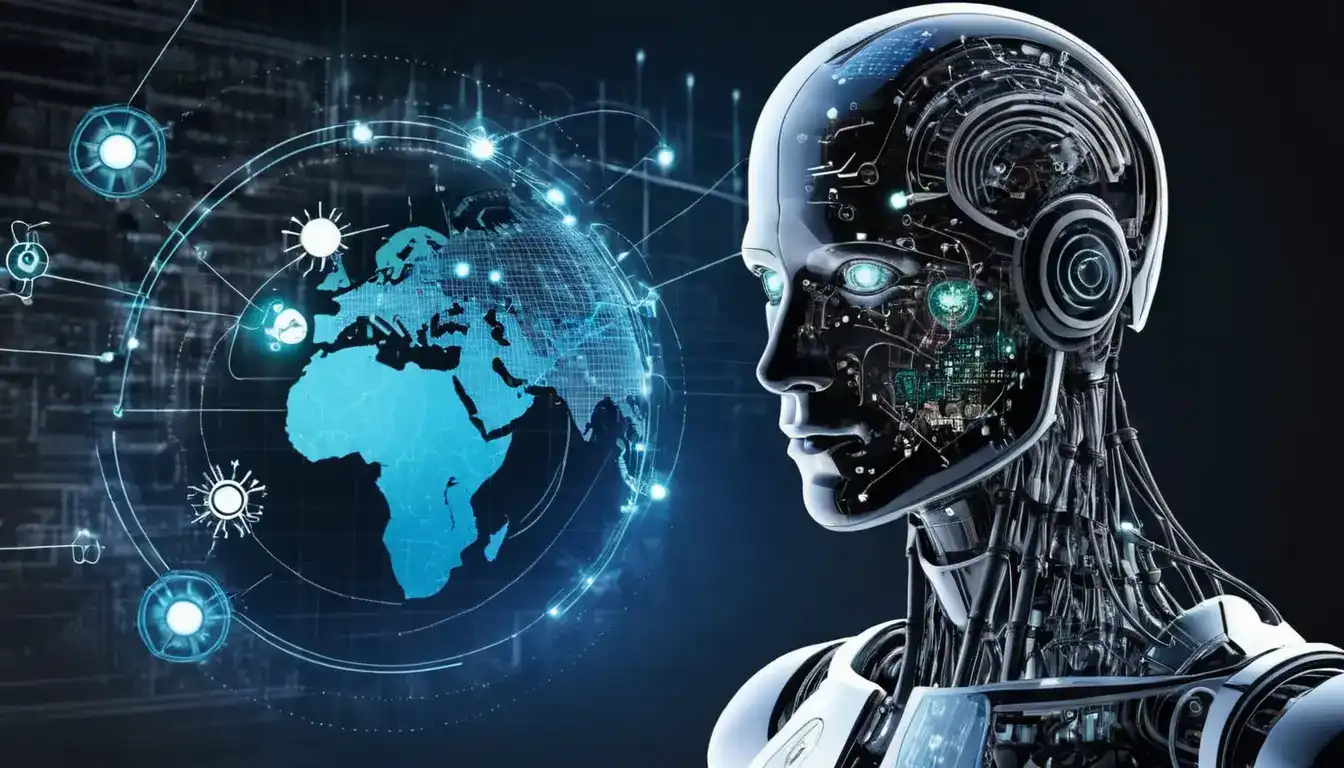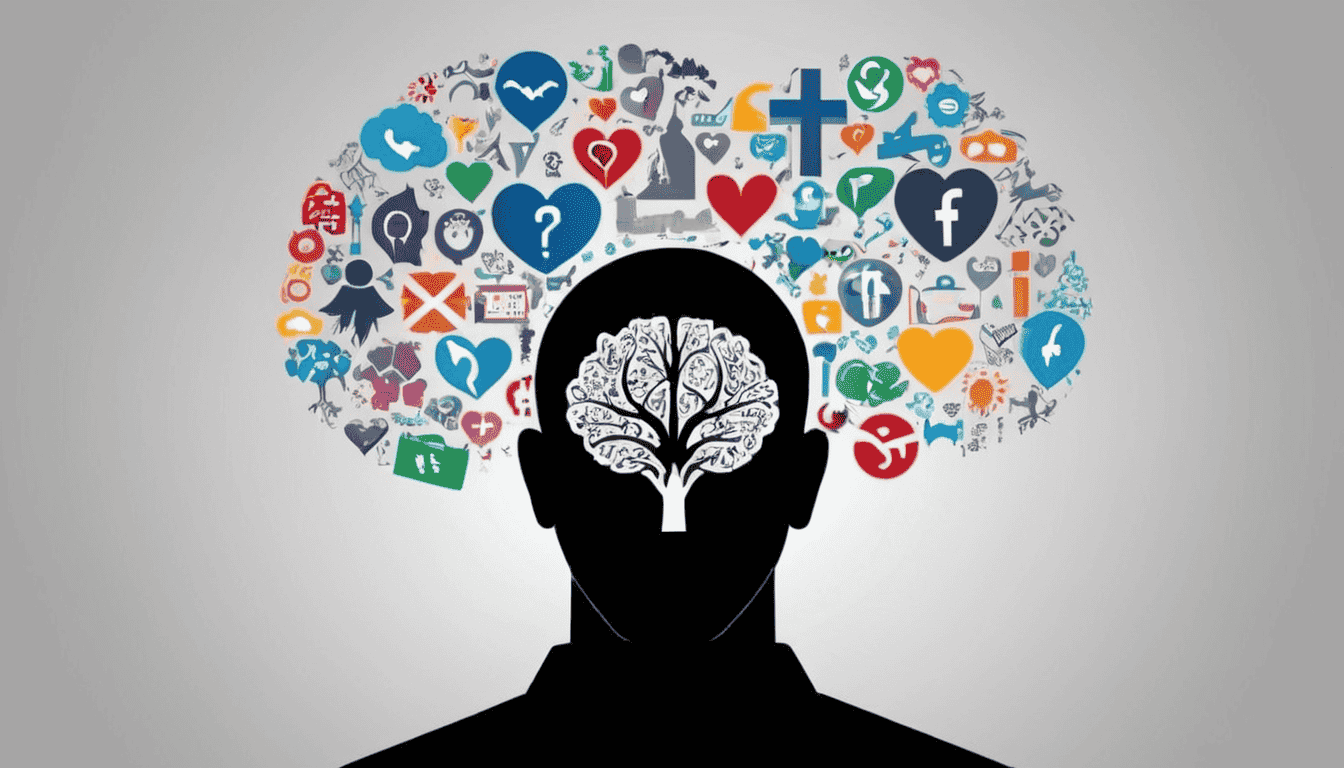The Impact of Globalization on the Economies of Developing Countries
Emily Willis

Photo: The Impact of Globalization on the Economies of Developing Countries
Introduction
Globalization has reshaped the world in numerous ways, impacting economies, cultures, and societies. For developing countries, globalization offers both opportunities and challenges. This article explores the effects of globalization on the economies of developing countries, highlighting its benefits and drawbacks.
1. Increased Access to Markets
One of the most significant impacts of globalization on developing countries is the increased access to global markets. This access allows these countries to export goods and services, which can lead to economic growth and development. By participating in international trade, developing countries can:
- Expand their customer base: Reaching a larger audience can boost sales and revenue.
- Diversify their economies: Reducing reliance on a single industry or market can make economies more resilient.
- Attract foreign investment: A global market presence can attract investors looking for new opportunities.
2. Transfer of Technology and Knowledge
Globalization facilitates the transfer of technology and knowledge from developed to developing countries. This transfer can enhance productivity, innovation, and efficiency. Key benefits include:
- Improved infrastructure: Advanced technologies can improve transportation, communication, and energy systems.
- Better education and healthcare: Access to global knowledge can enhance education systems and healthcare services.
- Increased competitiveness: Adopting new technologies can help developing countries compete more effectively in the global market.
3. Job Creation and Employment Opportunities
As multinational corporations expand their operations to developing countries, they create job opportunities. These jobs can improve living standards and reduce poverty. Benefits of job creation include:
- Higher incomes: Employment in international companies often comes with better wages and benefits.
- Skill development: Workers gain new skills and experiences that can enhance their employability.
- Economic diversification: The creation of new industries can reduce dependence on traditional sectors.
4. Cultural Exchange and Integration
Globalization promotes cultural exchange and integration, fostering mutual understanding and respect among different cultures. This cultural exchange can:
- Enhance creativity: Exposure to diverse ideas and perspectives can spark innovation.
- Strengthen social ties: Cultural integration can lead to stronger international relationships and cooperation.
- Promote global citizenship: Understanding and appreciating different cultures can foster a sense of global responsibility.
5. Challenges of Globalization
While globalization offers numerous benefits, it also presents challenges for developing countries. Some of the key challenges include:
Economic Inequality
Globalization can exacerbate economic inequality both within and between countries. Wealthier individuals and nations often benefit more from globalization, leading to a widening gap between rich and poor. Addressing this inequality requires targeted policies and interventions.
Loss of Domestic Industries
The influx of foreign goods and services can harm domestic industries that are unable to compete with international companies. This can lead to job losses and economic instability. Protecting local industries through supportive policies and regulations is essential.
Environmental Impact
Increased industrial activity and trade can lead to environmental degradation. Developing countries may face challenges in balancing economic growth with environmental sustainability. Implementing eco-friendly practices and regulations is crucial to mitigate these impacts.
Cultural Homogenization
While cultural exchange can be beneficial, there is a risk of cultural homogenization, where local cultures and traditions are overshadowed by dominant global cultures. Preserving cultural heritage and promoting cultural diversity is important to maintain unique identities.
6. Strategies for Maximizing Benefits and Minimizing Drawbacks
To fully leverage the benefits of globalization while minimizing its drawbacks, developing countries can adopt several strategies:
Strengthening Education and Skills Development
Investing in education and skills development is vital to prepare the workforce for the global market. By improving educational systems and offering vocational training, developing countries can enhance their human capital and competitiveness.
Promoting Innovation and Entrepreneurship
Encouraging innovation and entrepreneurship can drive economic growth and diversification. Governments can support startups and small businesses through funding, mentorship programs, and favorable regulations.
Implementing Fair Trade Practices
Adopting fair trade practices ensures that trade benefits are distributed more equitably. This includes providing fair wages, ensuring safe working conditions, and supporting sustainable production methods.
Enhancing Infrastructure
Developing robust infrastructure, such as transportation, communication, and energy systems, is essential to support economic activities and attract foreign investment. Governments and international organizations can collaborate to fund and develop infrastructure projects.
Strengthening Governance and Institutions
Good governance and strong institutions are critical for managing the impacts of globalization. Transparent policies, effective regulation, and anti-corruption measures can create a stable and conducive environment for economic growth.
Conclusion
Globalization has a profound impact on the economies of developing countries, offering both opportunities and challenges. By increasing access to markets, facilitating technology transfer, creating jobs, and promoting cultural exchange, globalization can drive economic growth and development. However, addressing the challenges of economic inequality, loss of domestic industries, environmental impact, and cultural homogenization is essential to ensure sustainable and inclusive growth. By adopting strategic measures and fostering international cooperation, developing countries can maximize the benefits of globalization and build a brighter future.
Latest ✨
View AllLuxury cruises offer a heightened travel experience with impeccable service, luxurious accommodations and carefully crafted itineraries. These cruises strike the perfect balance between leisure and exploration, with destinations that include the Mediterranean, Caribbean, Alaska, Norwegian Fjords and South Pacific Islands.
Emily Willis
Cloud computing is essential for modern businesses, offering cost savings, scalability, and improved collaboration. Implementing cloud computing requires careful planning to ensure safety and efficiency. Tips for safe and efficient implementation include conducting a needs assessment, choosing the right cloud service model, prioritizing security, planning for data migration, optimizing costs, training your team, implementing backup and recovery solutions, monitoring performance, planning for scalability, and staying updated with industry trends.
Emily Willis
The stock market is a crucial component of the global economy, providing a platform for capital formation, investment, and wealth creation. Understanding stock market movements, including bull and bear markets, market volatility, and factors influencing stock prices, is essential for investors, businesses, and policymakers. Economic, financial, and behavioral factors all play a role in shaping stock market dynamics.
Emily Willis
productivity in the workplace and provides a comprehensive guide to enhancing productivity. It covers topics such as understanding productivity styles, creating a productive workspace, time management, overcoming distractions, enhancing motivation and energy levels, effective task management, collaborating and delegating tasks, utilizing technology for productivity, and maintaining work-life balance.
Emily Willis
Business
View All
August 5, 2024
Effective Marketing Strategies to Increase Your Business Saleseffective marketing strategies in today's competitive marketplace. It discusses the significance of understanding the target audience, building a strong brand identity, and implementing various marketing tactics to increase sales. Specific strategies such as video marketing, influencer marketing, optimizing customer experience, embracing omnichannel marketing, tracking performance, staying updated on trends, and continuous improvement are highlighted.
Emily Willis

August 4, 2024
How to Build a Strong Brand Identity for Your BusinessBuilding a strong brand identity is essential for business success as it helps differentiate you in the market, connect with your audience, and build loyalty. Key steps include understanding your target audience, defining your mission and values, developing a unique selling proposition, creating a memorable brand name and logo, choosing brand colors and typography, crafting a brand voice and messaging, ensuring a consistent brand experience, leveraging visual content.
Emily Willis

August 5, 2024
Tips for Finding the Right and Profitable Business Ideasteps to finding a profitable business idea, including understanding your passions and skills, solving problems, conducting market research, finding a niche, leveraging your network, brainstorming, testing and validating your idea, staying updated on trends, evaluating market potential, validating your idea with customers, evaluating financial viability, protecting intellectual property, seeking guidance and support, and being prepared to adapt and evolve.
Emily Willis
Economy
View AllThe world of international trade is facing disruption due to rising protectionism, geopolitical tensions, technological advancements, shifting consumer preferences, and the rise of e-commerce. This has led to higher prices for consumers, disrupted supply chains, job losses, and reduced economic growth.
Read MoreCryptocurrencies are digital assets that operate on a decentralized system called blockchain. They offer potential benefits such as faster and cheaper transactions, enhanced security, financial inclusion, transparency, and a hedge against inflation. However, they also come with risks such as volatility, regulatory uncertainty, security concerns, environmental impact, and potential for illicit activities.
Read MoreBest Secured Loans for Debt Consolidation with Low Interest Rates | Compare Top Lenders & Save Money on Monthly Payments
Read MoreEntertainment
View All
August 4, 2024
The Future of Cinema: Trends in Film Production, Distribution, and Audience Engagementthe ever-evolving landscape of cinema, driven by technological advancements, changing audience preferences and innovative storytelling approaches. The exhibition explores trends such as digital filmmaking, virtual production, the dominance of streaming services, hybrid release models, and the revitalization of cinemas.
Emily Willis

August 4, 2024
Profiles of Famous Artists Who Inspire the Younger Generationthe inspirational aspects of famous artists such as Vincent van Gogh, Frida Kahlo, Pablo Picasso, Banksy, Yayoi Kusama, Jean-Michel Basquiat, Georgia O'Keeffe, Andy Warhol, Kehinde Wiley, and Ai Weiwei. It highlights their perseverance, innovation, authenticity, social commentary, mental health advocacy, and representation, among other qualities, and how these aspects continue to inspire young artists to pursue their creative dreams.
Emily Willis

August 5, 2024
Music Universal Language: Connecting and Inspiring Across CulturesMusic has the power to transcend language barriers and connect people on a deep emotional level. It serves as a bridge between cultures, fostering understanding and appreciation for diversity. The universality of rhythm and melody creates a sense of unity, while the diversity of musical styles allows for exploration and creativity.
Emily Willis
Health
View Allsignificance of mental health awareness in today's fast-paced world. It discusses the importance of understanding mental health, breaking down stigma, and promoting positive mental health practices.
Emily Willis
Maintaining good health involves a balanced diet that provides essential nutrients for the body. A balanced diet includes carbohydrates, proteins, fats, vitamins, minerals, fiber, and water. Benefits of a balanced diet include enhanced energy levels, improved mental health, a stronger immune system, better weight management, reduced risk of chronic diseases, and enhanced digestion. Components of a balanced diet include fruits and vegetables, whole grains, protein sources, dairy or dairy alternatives, and healthy fats. Tips for maintaining a balanced diet include planning meals, portion control, staying hydrated, limiting processed foods, eating mindfully, and including physical activity.
Emily Willis
In today's fast-paced world, stress, anxiety, and depression are common mental health challenges that can affect our overall well-being. Understanding these issues and taking steps to manage them is important. Strategies for managing mental health include prioritizing self-care, practicing mindfulness and relaxation techniques, challenging negative thoughts, connecting with others, developing healthy coping mechanisms, managing time effectively, and seeking professional help when needed.
Emily Willis
Trending 🔥
View All
1
2
3
6
7
8
9
10
Sports
View AllAugust 5, 2024
Inclusive Playing Field: Creating a Welcoming and Accessible Sports Environment
Read MoreAugust 4, 2024
The Importance of Mental Training and Psychological Strategies in Helping Athletes Reach Their Peak Performance on the Field
Read MoreAugust 5, 2024
Sportsmanship in the Spotlight: Cultivating Respect, Integrity, and Ethical Behavior
Read MoreTechnology
View All
August 5, 2024
Best AR Translation Apps Tested
Uncover the best AR translation apps on the market through our in-depth testing and reviews. From seamless voice conversations to real-world text translation, these apps will revolutionize the way you communicate across languages.

August 5, 2024
AI Applications that are Changing the World Around Us
Artificial Intelligence (AI) is no longer a concept from science fiction, but a reality that is reshaping the world around us. From virtual assistants to self-driving cars, AI is making significant impacts in various industries such as healthcare, education, transportation, and agriculture. AI is also being used to address environmental challenges and enhance customer experiences.

August 4, 2024
The Metaverse: A Virtual World with Endless Possibilities
metaverse is a rapidly evolving concept that offers a network of interconnected 3D virtual spaces accessed through technologies like VR and AR.

August 5, 2024
How to Choose the Right Cloud Computing Platform for Your Needs
Choosing the right cloud computing platform is essential for business success. Factors to consider include assessing business needs, evaluating cost and pricing models, analyzing performance and reliability, examining security and compliance, considering scalability and flexibility, evaluating support and customer service, assessing integration and compatibility, and reviewing user experience and ease of use.





















